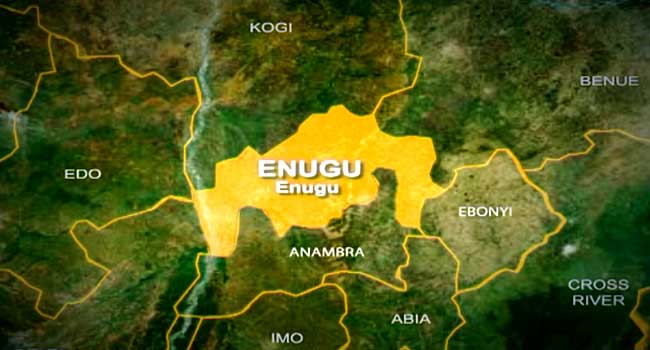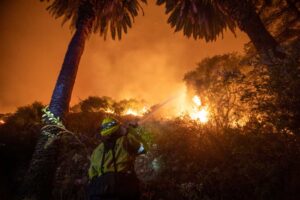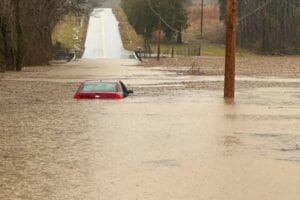Tragedy strikes twice along the Ozalla/Four-Corner axis of the Enugu-Port Harcourt Expressway, leaving families in mourning and a community calling for safer roads.
On Wednesday, the usually busy Ozalla/Four-Corner axis of the Enugu-Port Harcourt Expressway turned into a nightmare for many families. Two separate road accidents, both occurring within a span of just six hours, claimed the lives of at least ten people and left ten others battling for survival in hospital.
The police in Enugu confirmed the incidents through their spokesperson, Superintendent Daniel Ndukwe, who described the crashes as “tragic and avoidable.” The accidents occurred at about 9 a.m. and 3 p.m. along the same stretch of road, raising serious questions about reckless driving, poor traffic management, and the increasing dangers faced by motorists on Nigerian highways.
The First Crash:
According to police reports, the first accident happened around 9 a.m. when a Howo truck, carrying cement from Aba and heading toward Abuja, rammed into a Toyota Corolla. The Corolla, in an attempt to overtake another truck, collided with the heavy-duty vehicle.
The impact sparked a chain reaction. A Foton bus and a Daihatsu Hijet mini-bus, both said to be driving one-way against traffic, were also caught in the chaos. What followed was a scene of fire and destruction.
Eyewitnesses described how the truck’s head and the Corolla immediately went up in flames. Five occupants trapped inside the car were burnt beyond recognition. A passenger in the mini-bus also died on the spot.
By the time first responders arrived, the wreckage was engulfed in thick smoke, and residents could be seen recording videos while also attempting to help. The sight of charred bodies shocked many, leaving bystanders in tears.
The Second Crash
As if the morning disaster was not enough, tragedy struck again around 3 p.m. the same day. This time, it involved another cement-laden Sino truck and a tricycle (popularly known as Keke).
Police said the truck, reportedly driving one-way from Garriki to Nenwe, lost control and rammed into the tricycle. The collision was fatal. Four occupants of the tricycle were rushed to a nearby hospital but were later confirmed dead.
The second crash deepened the grief of the day, with locals lamenting the repeated recklessness of heavy-duty trucks along the expressway.
In total, ten other passengers from the two crashes sustained varying degrees of injuries. They were taken to hospitals in Enugu, where doctors are battling to stabilize them. Authorities did not immediately disclose the names of the victims or the medical facilities treating them, citing privacy concerns.
Families of the deceased and injured, however, have begun to troop to hospitals and mortuaries in search of their loved ones. For them, what started as a normal day turned into a lifetime of grief.
Police Commissioner Reacts
The Commissioner of Police in Enugu State, Bitrus Giwa, expressed deep sorrow over the accidents. In a statement released by his office, Giwa sent condolences to the bereaved families and assured the public that investigations had begun.
He directed the State Motor Traffic Department to carry out a detailed probe into the causes of the crashes, especially the role of trucks allegedly driving against traffic.
Calling the incidents “avoidable tragedies,” the commissioner appealed to motorists to drive with caution, particularly as the festive season approaches—a time when traffic usually increases and road crashes become more frequent in Nigeria.
“No journey is worth a human life,” Giwa reminded drivers, urging them to respect traffic laws, avoid reckless overtaking, and prioritize safety over speed.
Public Outrage and Dangote Truck
Not long after the first accident, videos from the scene surfaced on Facebook. In one clip, a male voice could be heard angrily blaming a truck allegedly linked to the Dangote Group, one of Nigeria’s biggest companies and a major player in the cement industry.
“Dangote again!” the man shouted, accusing the company’s drivers of reckless behavior on highways. Another video showed responders evacuating bodies while passersby expressed anger and frustration.
Although the police statement did not confirm ownership of the truck, witnesses claimed the vehicle bore Dangote’s name and logo. PREMIUM TIMES reporters also observed the markings. However, it remains unclear whether the truck officially belongs to the company or was simply carrying its branded load.
For many Nigerians, the incident rekindled old grievances about the frequency of accidents involving trucks associated with big cement and transport companies. On social media, users demanded stricter regulations and accountability.
Avoidable Deaths
Sadly, accidents like these are far from unusual on Nigerian roads. Statistics from the Federal Road Safety Corps (FRSC) show that thousands of lives are lost yearly due to reckless driving, over-speeding, and disregard for traffic rules. Heavy-duty trucks, often overloaded and poorly maintained, are frequently involved in such disasters.
The Ozalla/Four-Corner axis of the Enugu-Port Harcourt Expressway has long been a notorious black spot. Local drivers complain that the narrow lanes, combined with impatient overtaking and frequent one-way driving, make it a death trap. Yet, little seems to change.
In the wake of the crashes, road safety experts and community leaders are calling for stronger enforcement of traffic laws. They argue that while drivers must take responsibility, government agencies must also do more to monitor truck operations and penalize companies whose vehicles endanger lives.
Civil society groups have also urged the federal and state governments to improve road infrastructure and create safer alternatives for heavy-duty vehicles. For instance, designated truck parks and stricter weight checks could help reduce risks.
Beyond the statistics and headlines, the human stories remain the most painful. In one of the videos, charred remains could be seen inside a burnt vehicle. Each of those lives represents a family torn apart—a parent who won’t return home, a child left without guidance, or a friend who will no longer share laughter.
For the ten survivors still fighting for their lives in hospital, the road to recovery will be long and uncertain. Some may live with permanent scars or disabilities. For their families, the burden of medical costs and emotional trauma is only beginning.
Lessons and Warnings
The double tragedy in Enugu is another reminder that road safety is not optional. Motorists must remember that overtaking carelessly, driving against traffic, and neglecting safety rules can end lives in seconds.
Truck drivers and companies also bear huge responsibility. When profit is placed above safety, ordinary commuters become the victims. A single act of negligence can wipe out an entire family.
The police commissioner’s warning is timely: every driver must recognize that no destination is worth a human life. Until motorists, companies, and government agencies take this to heart, Nigeria will continue to witness tragedies like the one in Enugu.
Final Thoughts
Ten people are gone, ten others are in hospital, and countless families are in mourning. Yet, the bigger question remains: will the lessons be learned?
For the sake of those who died, and for the safety of those still traveling Nigerian roads daily, it must not be business as usual. Reckless driving, weak enforcement, and neglect of road safety have claimed too many lives. It is time for change.




